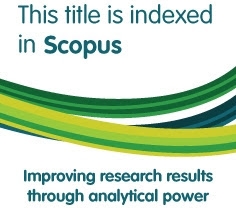The Role of Islamic Student Groups in the Reformasi Struggle: KAMMI (Kesatuan Aksi Mahasiswa Muslim Indonesia)
Abstract
This article provides an investigation of KAMMI's role in the reformasi movement with respect to its relationship with the nation, the umat, and the larger student movement. As it explores the pressures that have confronted Islamic students throughout the period, it addresses some of the most salient topics currently being debated in Indonesian society. Most importantly, it provides an analysis of KAMMI's stance toward the legitimacy of former president B. J. Habibie's government and its right to lead reform as opposed to the positions of several "radical' student groups which demanded the formation of a transitional government; its position on the politicization of Islamic symbols vis-à-vis the activities of certain "hard-line" Islamist organizations; and its commitment to peaceful action and the rejection of the use of violence as a form of protest. In spite of its collegiality with right-wing Muslim organizations, several of which have been criticized as resistant to reform, self-interested, or politically opportunistic, KAMMI has made a critical contribution to the reform process. Most significantly, it has demonstrated that, contrary to what certain Islamic groups have urged, being a devout Muslim does not preclude struggling for democratic reform, nor voicing opposition to the government. Likewise, in spite of its solidarity with other student groups, several of which have been accused of being politically motivated, manipulated by partisan power brokers, or naively desirous of anarchy, KAMMI has shown that a student organization can apply strong pressure on national leaders, yet refrain from violent altercations which promote civil unrest and societal breakdown. The group's ongoing activities in reaction to the divisive conflicts that have erupted in the regions of Aceh, Ambon, and East Timor are also significant, yet have not been analyzed within the scope of this paper. Rather, the focus of this writing is on KAMMI's role in Indonesia's recent political transition, especially the pivotal events of. 1998, which set the stage for Indonesia's transition from an authoritarian state to the world's third largest democracy.
Full Text:
PDFDOI: https://doi.org/10.15408/sdi.v7i1.715 Abstract - 0 PDF - 0
Refbacks
- There are currently no refbacks.

All publication by Studia Islamika are licensed under a Creative Commons Attribution-NonCommercial 4.0 International License.
Studia Islamika, ISSN: 0215-0492, e-ISSN: 2355-6145
View My Stats
